Welcome to the Wisconsin Department of Workforce Development eWorkBoard.
Expand each list below to learn important information about workplace posters and your rights and protections.
Digital Poster: English | Spanish | Hmong

For help using online services, or for questions not answered online, call during business hours:
See the Wisconsin Unemployment Insurance Handbook for Employers.
U.S. Small Business Administration has a helpful tool for businesses to find out what posters they are mandated to display.
Printable Workplace Poster: English | Spanish | Hmong | Other Languages
Digital Poster: English | Spanish
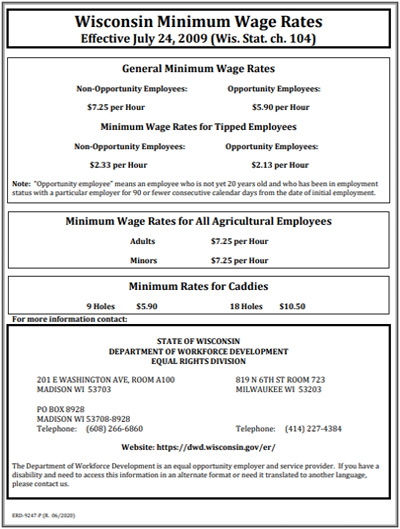
For question about the Wisconsin Minimum Wage poster contact Equal Rights:
U.S. Small Business Administration has a helpful tool for businesses to find out what posters they are mandated to display.
Digital Poster: English
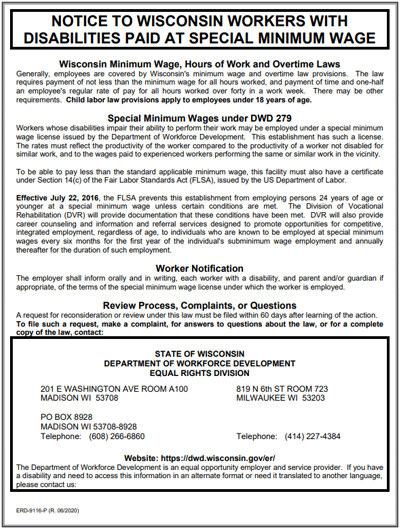
U.S. Small Business Administration has a helpful tool for businesses to find out what posters they are mandated to display.
Application for a Special Minimum Wage License
Printable Workplace Poster: English
Digital Poster: English | Spanish
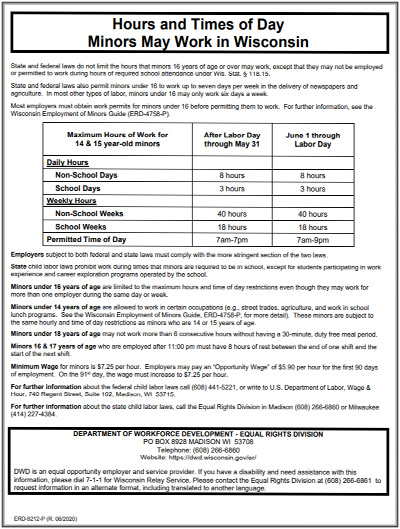
U.S. Small Business Administration has a helpful tool for businesses to find out what posters they are mandated to display.
Digital Poster: English | Spanish
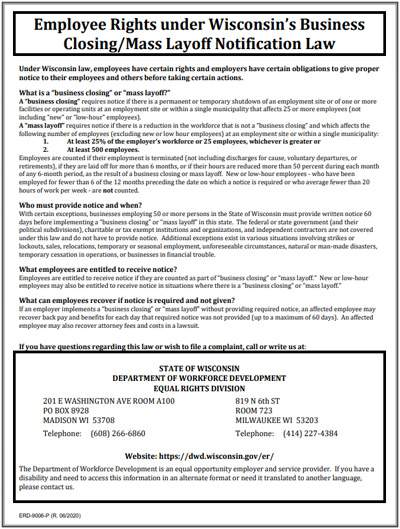
U.S. Small Business Administration has a helpful tool for businesses to find out what posters they are mandated to display.
Digital Poster: English
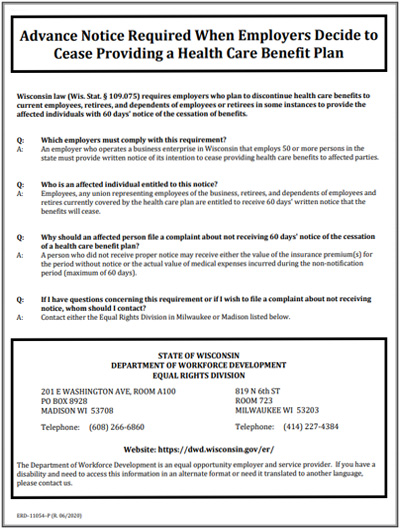
U.S. Small Business Administration has a helpful tool for businesses to find out what posters they are mandated to display.
Printable Workplace Poster: English
Digital Poster: English | Spanish
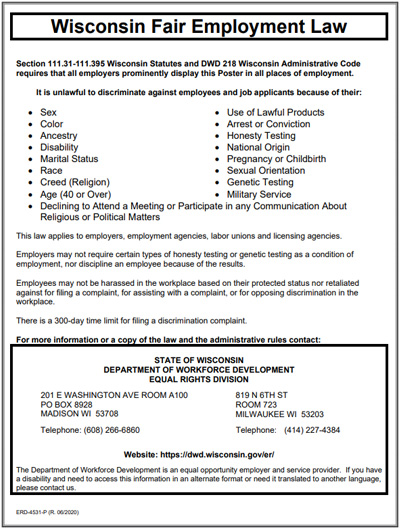
For question about the Wisconsin Fair Employment Law poster contact Equal Rights:
U.S. Small Business Administration has a helpful tool for businesses to find out what posters they are mandated to display.
Digital Poster: English | Spanish
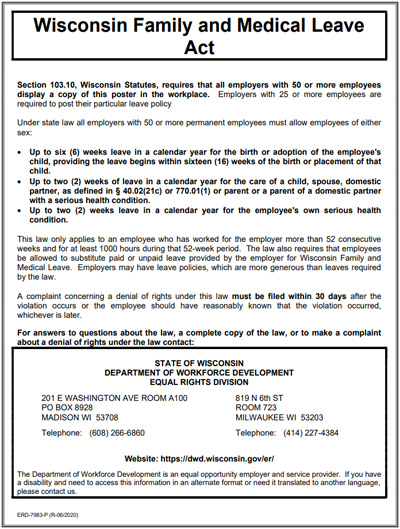
U.S. Small Business Administration has a helpful tool for businesses to find out what posters they are mandated to display.
Digital Poster: English | Spanish
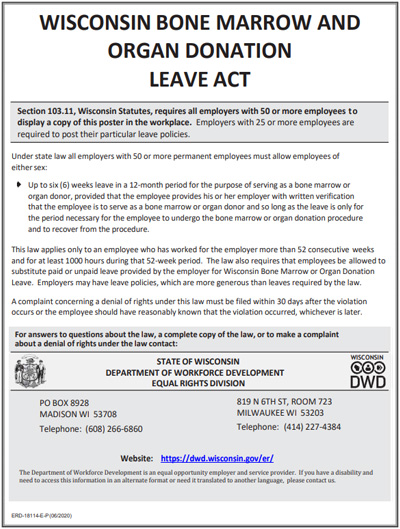
The can be found on the Department of Workforce Development's website.
U.S. Small Business Administration has a helpful tool for businesses to find out what posters they are mandated to display.
Digital Poster: English | Spanish
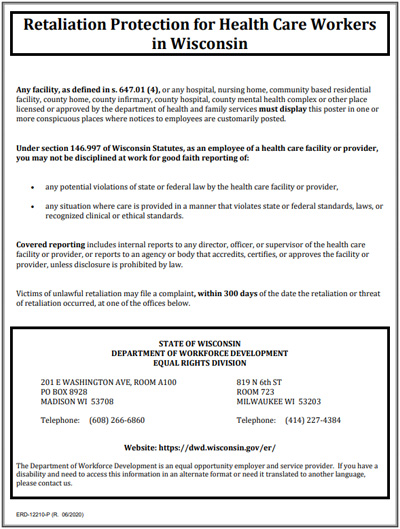
U.S. Small Business Administration has a helpful tool for businesses to find out what posters they are mandated to display.
Digital Poster: English

U.S. Small Business Administration has a helpful tool for businesses to find out what posters they are mandated to display.
Printable Workplace Poster: English
Digital Poster: English | Hmong | Spanish
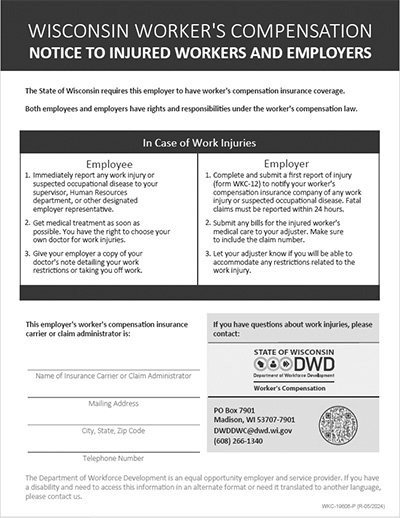
For questions about Wisconsin Worker's Compensation please contact the Worker's Compensation Division:
Digital Poster: English | Spanish
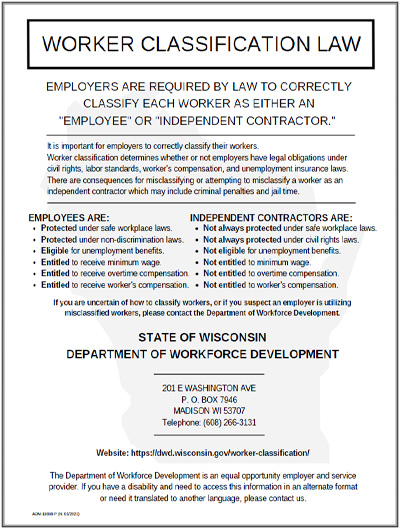
U.S. Small Business Administration has a helpful tool for businesses to find out what posters they are mandated to display.
Digital Poster: English
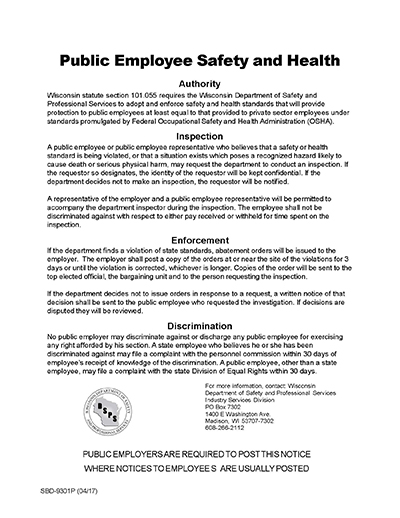
The Public Employee Safety and Health poster can be found on the Department of Safety and Professional Services website.
Digital Poster: English

The Hazardous Chemicals in the Workplace poster can be found on the Department of Safety and Professional Services website.